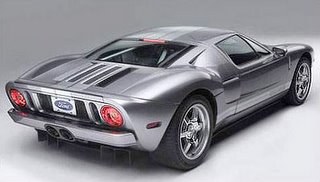Future Ford niche cars may get carbon-fiber components
The carbon fiber and epoxy material used in the inner rear deck of the $150,000 Ford GT may find its way into other low-volume Ford Motor Co. models, a Ford engineer says. The GT's clamshell inner panel "has performed flawlessly throughout engineering development and in production, with no issues whatsoever," says Fred Goodnow, program design, engineering and launch manager on the high-performance Ford GT.
The GT's clamshell inner panel "has performed flawlessly throughout engineering development and in production, with no issues whatsoever," says Fred Goodnow, program design, engineering and launch manager on the high-performance Ford GT.
He adds, "As a result of the success of the GT clamshell inner panel, we would definitely consider this material in future applications."
But there are drawbacks.
"The limiting factor on carbon fiber usage is the cost," Goodnow says.
"The business case would have to support its usage in any specific application."
Also, he says, the cycle time to make the panel, compared with injection molding, prevents it from being used on higher-volume vehicles.
Engineers drew on carbon fiber's benefits in designing the midengine GT and equally distributing weight for optimal balance and precise handling.
The GT's V-8 engine produces 550 hp.
The GT's clamshell inner panel measures about 4Ѕ feet by 6Ѕ feet. The one-piece, 14-pound composite lid resolved tight-tolerance, weight and complexity issues when compared with another inner lid idea that used four or five pieces of individually stamped aluminum.
The GT's decklid assembly consists of the stiff inner structure and an exterior superplastic-formed aluminum skin.
Sparta Composites, of San Diego, makes the carbon-fiber component, and a Mayflower Vehicle Systems Inc. plant in Norwalk, Ohio, hems the inner lid and aluminum skin. Saleen Inc.'s special vehicle operation in Troy, Mich., handles painting and final assembly.
Source: © autoweek.com by Roger Renstrom